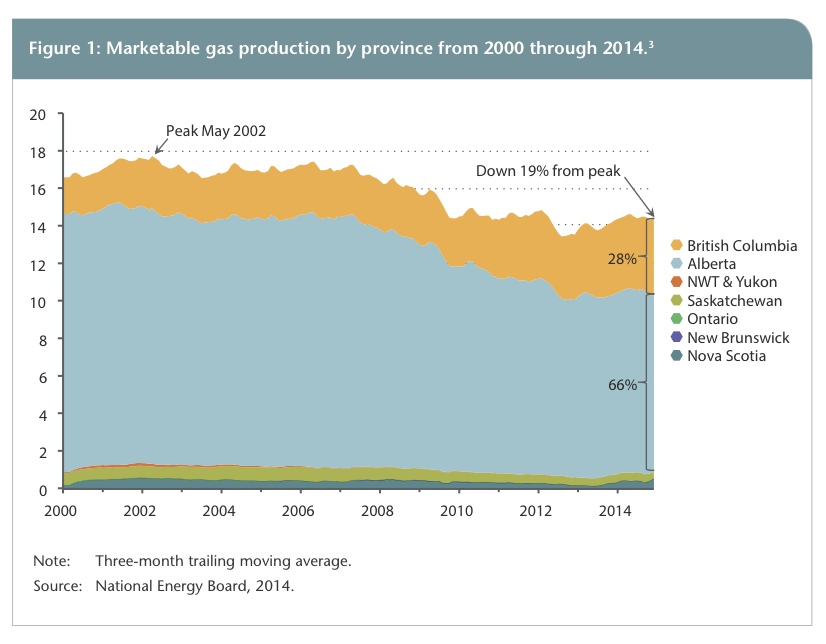Peak Natural Gas
Conventional gas peaked in USA in 1973 and has dropped two-thirds since - fracking postponed rationing
nat. gas: California - Colorado - Pennsylvania - Texas - Oregon
No one on either side of the "electrification" campaign points out a really inconvenient truth - this campaign started as a "we want electricity not fossil fuels" effort except the largest energy source for electric generation in the USA / Canada is from burning natural gas. Since conventional nat. gas peaked in 1973 and has declined two thirds since, most of the gas burned to generate electricity is from fracking. So the environmentalists are campaigning to burn MORE natural gas under the guise of electrification. The average American has as much understanding where stuff comes from as the average dog or cat knows about pet food factories. It's just magic that it appears ...
Half of the electricity in the USA is now from unnatural gas (mostly from fracked gas) due to depletion of coal (USA peak coal was 1999, in terms of BTUs). It was a profound mistake to assume that nat. gas could simultaneously power electricity and heat cities in the winter. Fracking for gas has postponed the consequences of that mistake.
Some agencies and utilities are promoting a new use of running cars on nat. gas, but this is a tiny part of the gas industry and the peaking of fracking will likely make this a tiny sideshow. There are also campaigns to claim that "renewable" gas can substitute for fossil methane (which is what "natural" gas is), but the potential for biogas digesters of industrial sewage, landfill emissions and cooking forests into gas is less than the flow of fossil gas.
Claims for "100% renewable" ignore heating cold cities as conventional and fracked gas undergo geologic depletion. It is also reasonable to expect difficulties in the electric grids without gas as backbone power. These conclusions are not endorsements of the difficulties any more than a weather forecast of a Category Five hurricane is supportive of the damage that it can cause. Unfortunately, a severe natural disaster is usually a temporary disruption - the depletion of concentrated fossil finite carbon energy is a permanent shift, just like climate change is not a storm but a new abnormal.
A linguistic confusion: the use of "gas" in American English can refer to gasoline (a refined petroleum product) or nat. gas. On this page, it exclusively is about natural gas, or fossil methane, used to heat buildings, generate electricity, make industrial petrochemicals and synthetic fertilizers.
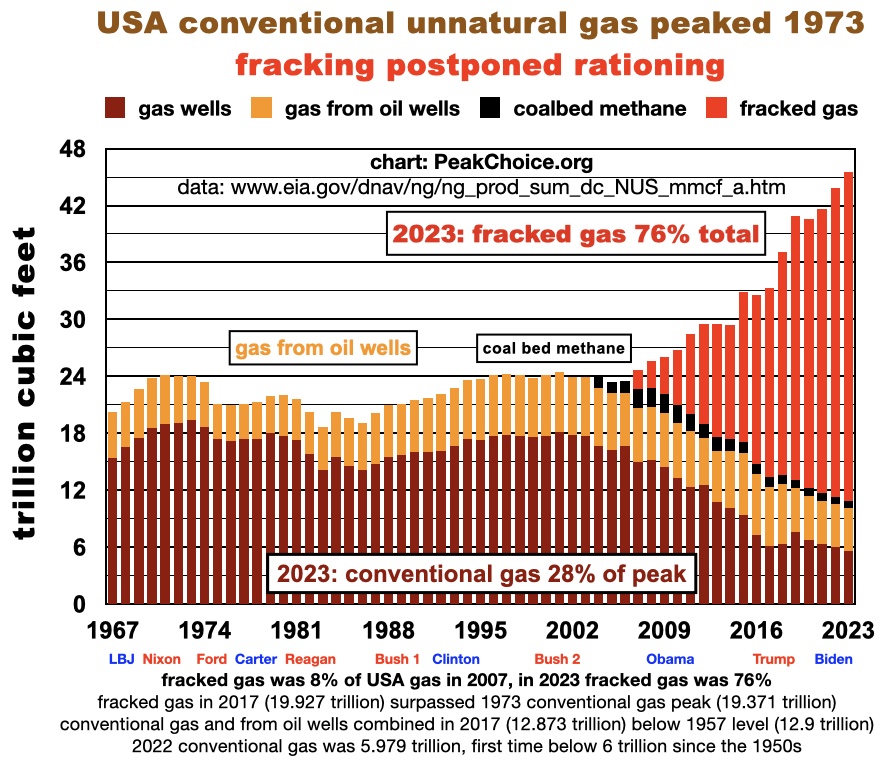
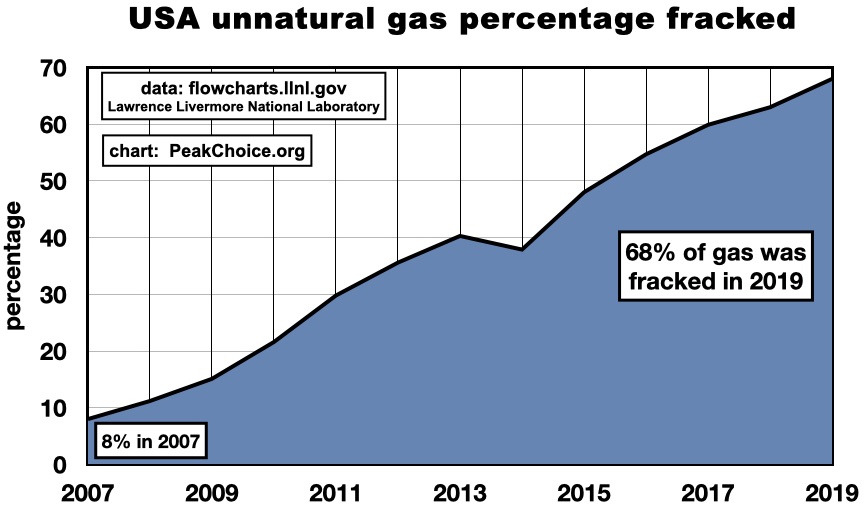
Conventional nat. gas in US in sharp decline
1973: 19,371,600 million cubic feet (peak conventional natural gas in USA)
2017: 6,716,681 million cubic feet (34.67% of the peak)
source: https://www.eia.gov/dnav/ng/hist/n9011us2a.htm
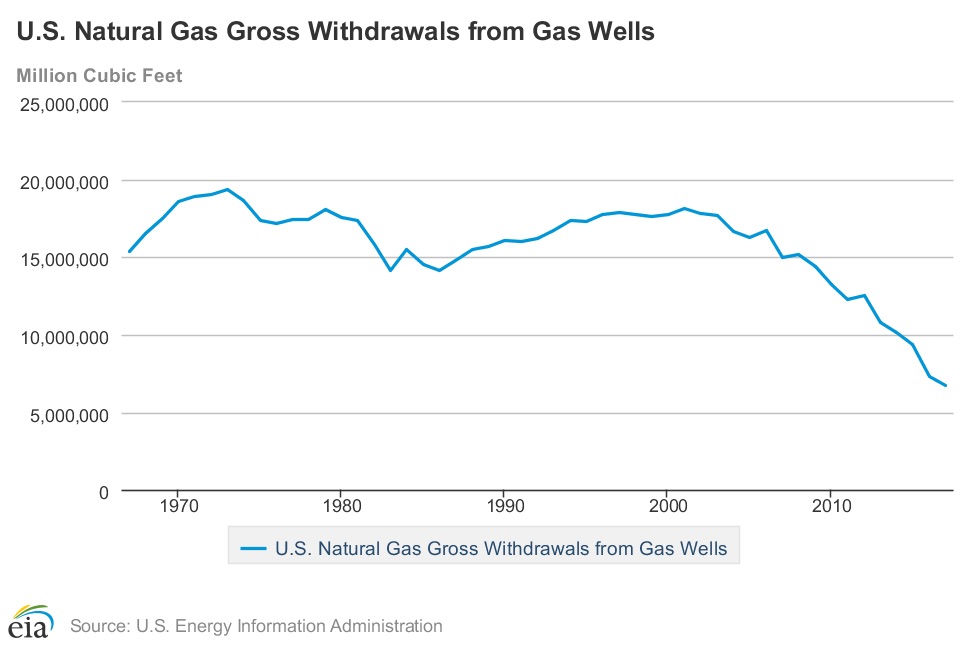
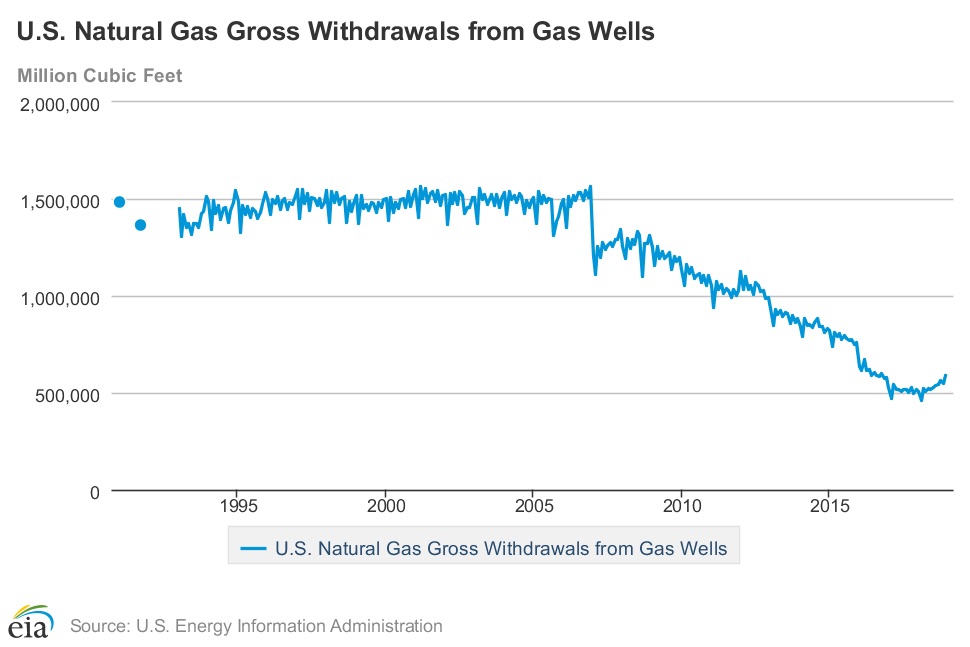
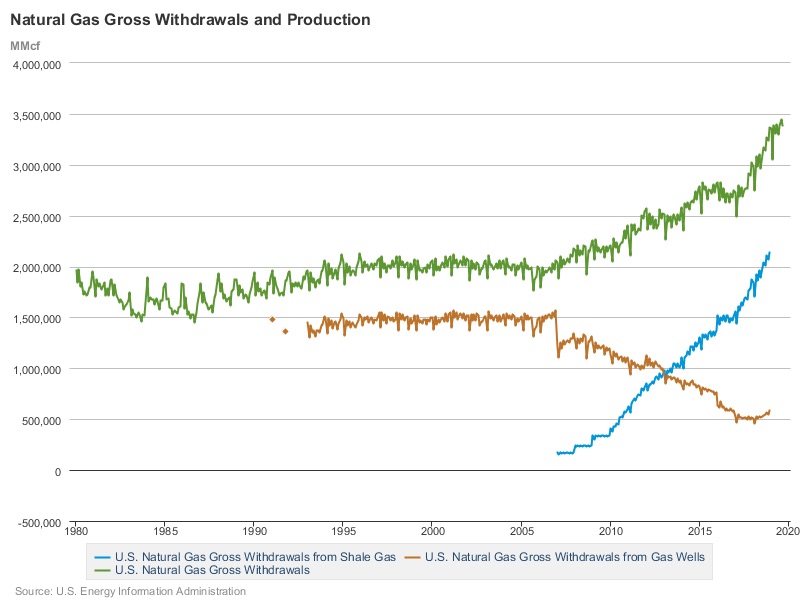
Fracked Shale Gas replaced Conventional Natural Gas
graphic from www.eia.gov/dnav/ng/ng_prod_sum_dcu_NUS_a.htm
graphic from www.eia.gov/dnav/ng/ng_prod_sum_dc_NUS_mmcf_a.htm
Natural gas extraction from oil wells (red) has remained relatively constant from the conventional well peak in 1973 to the present (brown). Coal bed methane (yellow) had a quick, small peak and is in decline. Fracking (blue) ramped up as conventional gas entered sharp decline and powers the illusion that natural gas is now abundant and cheap. The green line shows all sources of gas, totaled.
Fracking is a short term bubble since fracked wells deplete quicker than other types. As fracked gas enters decline the USA may enter the uncharted territory of permanent energy rationing.
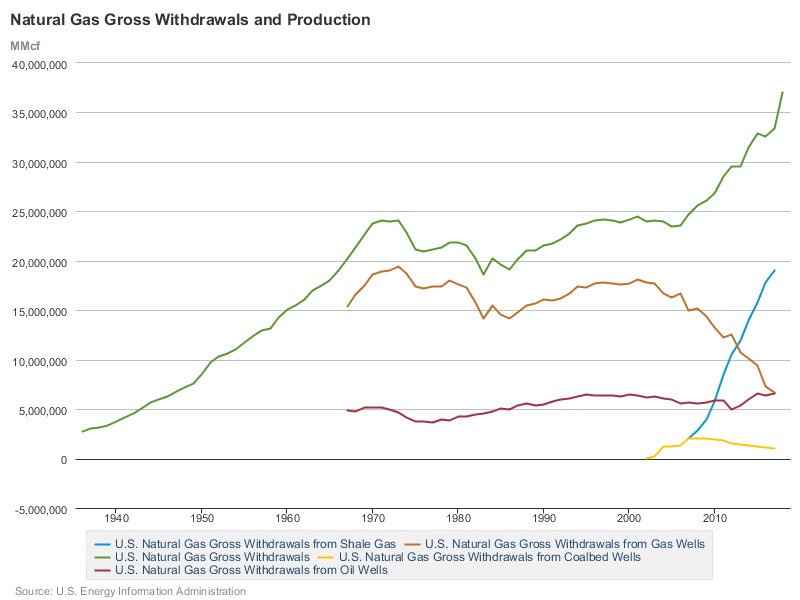
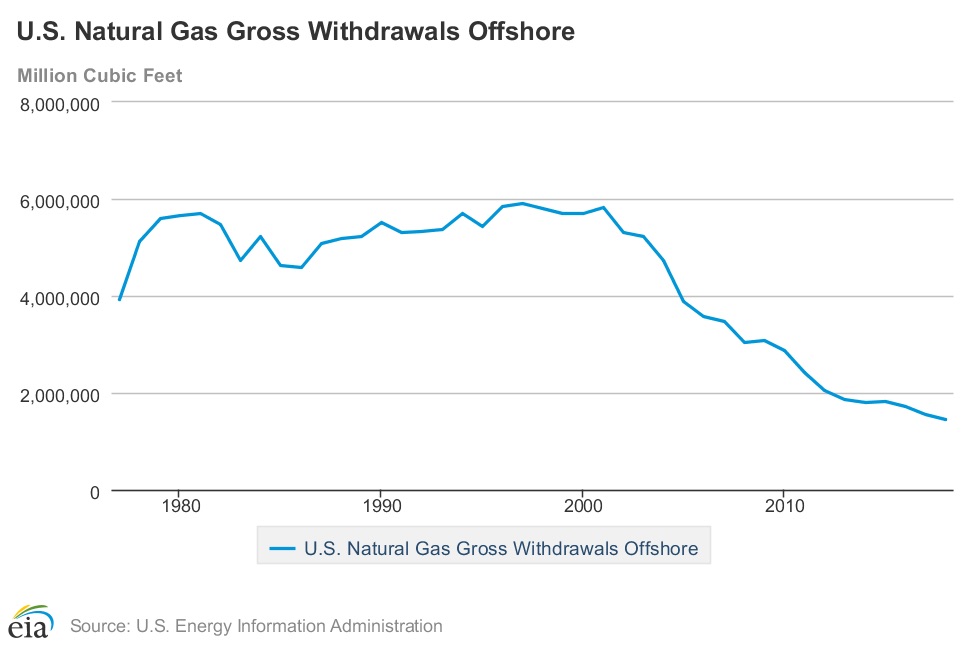
Peak Nat. Gas in Canada
reminder: it is colder in Canada than most of the USA. The North American Free Trade Agreement (NAFTA) treaty mandated Canada to sell gas and oil to the USA, without restrictions. I haven't looked into whether its 2019 replacement, US Mexico Canada (USMCA) continues this requirement. The new treaty could have been called US Canada Mexico, which would have had the acronym USCAM, pronounced "You Scam."
from David Hughes, "A Clear Look at BC LNG:
Energy security, environmental implications and economic potential "
www.policyalternatives.ca/sites/default/files/uploads/publications/BC%20Office/2015/05/CCPA-BC-Clear-Look-LNG-SUMMARY_0.pdf
